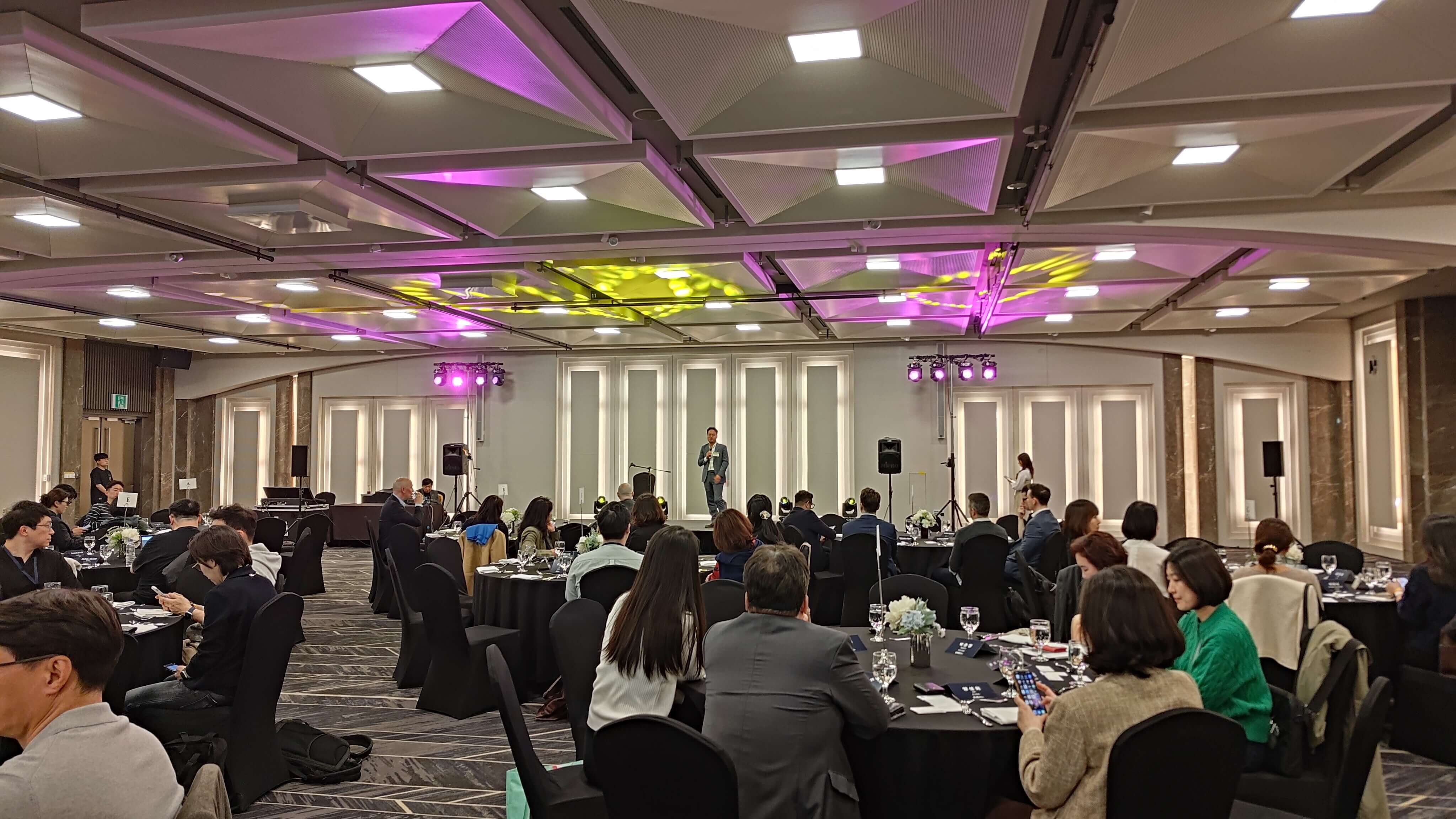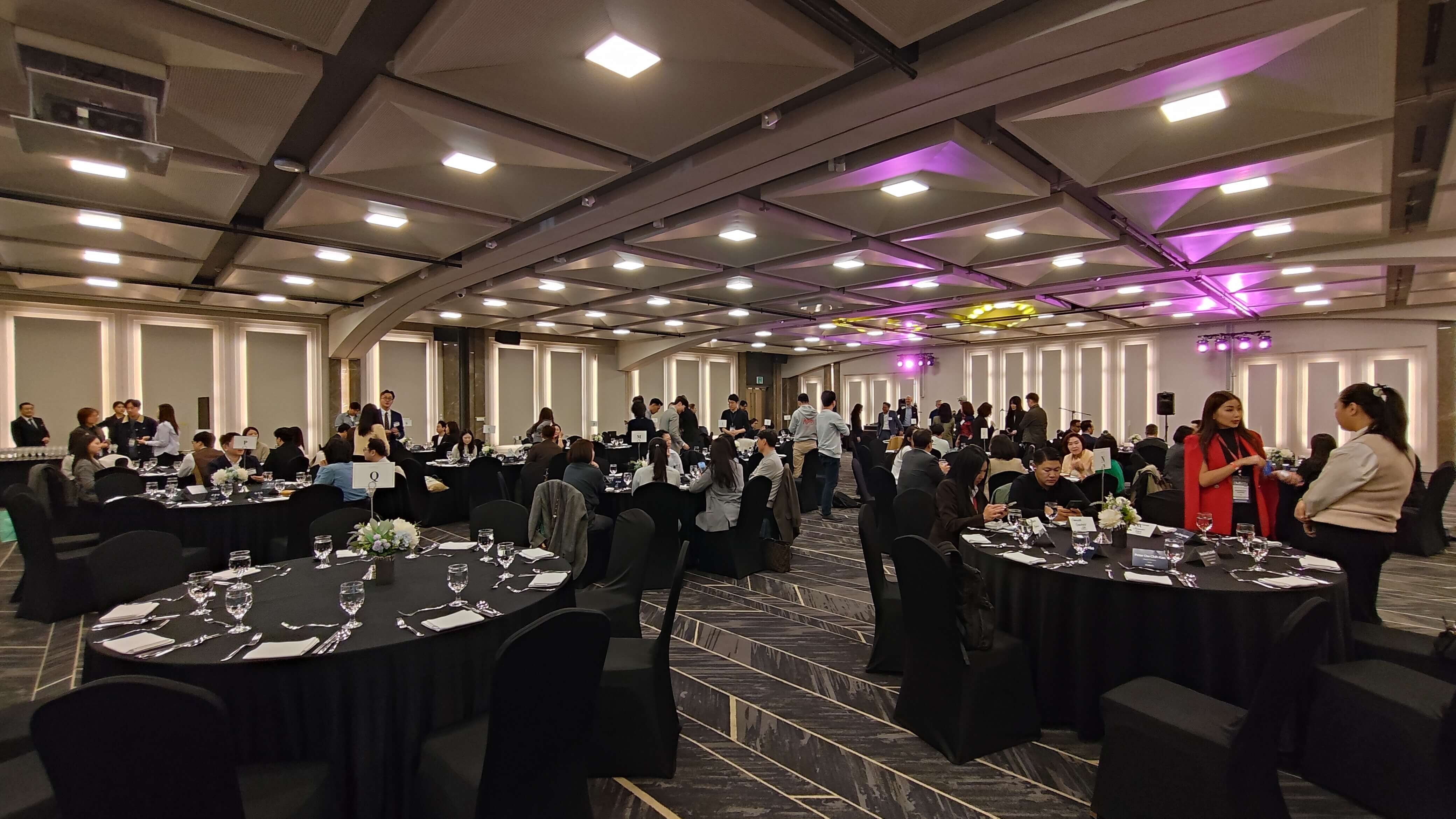DMS25 Final Part: AI-Powered CRM Marketing Strategies - Data-Driven Success
This is Part 4 and the final part of my DMS 2025 Seoul report. You can read Part 3 here
Data-Driven CRM Marketing Strategies
The afternoon featured a session by Mr. Park Min-Seong, CSO of Datarize, who presented in Korean (which I listened to through real-time interpretation and later processed through Whisper for translation).
His presentation focused on how AI has transformed the digital marketing landscape over the past three years, particularly in CRM. He emphasized that AI integration allows for hyper-personalized, automated, and scalable customer engagement.
Some of the key insights from his data-rich presentation:
- Over the last three years, AI has drastically shifted the digital marketing landscape
- CRM campaigns should align with specific customer journey moments (first purchase, cart abandonment)
- The key to success is identifying the right message, timing, and channel for each customer
- Campaign effectiveness increases when message content is properly structured for decision-making
- In Korea, channels like KakaoTalk prove especially effective for CRM
- Optimizing send time is crucial; testing across time slots reveals peak engagement periods
- Simple repeated messaging typically fails without contextual understanding and personalization
- CRM messages should be tailored based on a customer's stage (visit, signup, purchase)
- AI can segment customers by purchase likelihood and personalize outreach accordingly
- Customer interactions (page views, clicks, product impressions) serve as valuable prediction inputs
- Purchase intent scoring helps identify ideal follow-up timing and suppress low-conversion leads
- Campaign-level A/B testing reveals optimal send times and high-performing messages
- Structured data collection improves visibility into performance without requiring complex dashboards
- CRM becomes essential when revenue exceeds 4 billion KRW (approximately $3 million USD)
- Brands should shift from coupon-heavy CRM to dynamic interest-based recommendations
- Campaigns based on personal buying signals significantly outperform generic promotions
- Performance marketing without CRM will lose to brands that nurture loyalty
- CRM content should evolve from simple coupon lists to emotionally relevant storytelling
- Predictive CRM scoring yields significant conversion lift when properly optimized
- CRM metrics should prioritize message performance over just channel send counts
- Campaign sequencing (visit > message > conversion) should guide structure
- Korean brands using CRM effectively outperform competitors in long-term retention and LTV
- Even low-performing campaigns improve with predictive timing and scoring layers
- In today's competitive landscape, a 1% of sales improvement via CRM equals a huge growth multiplier
Actionable takeaways from Mr. Park's presentation:
- Segment customers by lifecycle stage (visitor, signup, buyer) to personalize CRM messages
- Use behavioral data (clicks, views, purchases) for CRM targeting and scoring
- Optimize message send times using multivariate testing or hourly A/B splits
- Score customers 0-100 by purchase intent to prioritize outreach and suppress weak leads
- Track message engagement (clicks, replies) for post-send optimization
- Include product USPs and visuals in CRM creatives to boost response
- Tailor CRM content format (cards, banners) based on customer browsing behavior
- Implement automated campaign logic to trigger based on real-time actions
- Use CRM scoring to identify top conversion windows for each segment
- Begin shifting CRM from discounts to meaningful, interest-driven storytelling
What I Think
We don't work much with CRMs. As he pointed out, CRM implementation becomes relevant only after reaching a certain business size. In my previous business, we did try to use a CRM to streamline deals and keep track of things, but the team was only 10 or so people, and made it more complicated.
Our company is still small enough that I can remember all our customers' business details, but understanding how these systems can be efficiently leveraged provides valuable knowledge for future growth and for discussions with clients.
But the points he raised which I summarized in the actionable takeaways above is not specific to CRMs. For example, moving away from value-promotion (discounts etc.) to interest-driven content fits with the examples given by Mariam Asmar during her keynote "Technology, Emotion And Immersion In 2025" is universal for marketing campaigns which business should be striving for.
Dinner For Guests
After all the talk sessions ended on the 1st day, selected guests and speakers were invited to a dinner session on the 2nd floor of the Grand Ballroom venue. Everyone was assigned a random seating at ten person tables to maximize the opportunity to get to know other attendees. We were also entertained by a guitar performance by Jang Ha-eun.

John Park, the founder and CEO of Digital Marketing Summit addressing the audience at the start of the dinner

Final Thoughts
The first day of DMS 2025 provided a rich tapestry of insights about the evolving marketing landscape. From Spotify's fan-centric approach to the nuanced debate about AI's role in marketing creativity, and the data-driven evolution of CRM strategies, there were lessons applicable to businesses of all sizes.
What stood out most was the consistent thread emphasizing the balance between technological efficiency and human connection. The most successful brands are leveraging technology—including AI—to enhance human creativity and build meaningful connections, not replace them.
The data points shared across sessions reinforced that while AI and technology provide powerful tools for personalization and efficiency, the brands seeing the greatest success are those maintaining emotional resonance and cultural relevance in their marketing.
All in all, Digital Marketing Summit in Seoul is a small, but punches above its weight. It's a great conference to get relevant and actionable insights to marketing, its trends and latest tools for marketing professionals. There are sessions in Korean and might be a hurdle if you don't understand it but there are real-time intepreters available. I was also pleasently suprised to meet other people coming in from Tokyo who were also speakers.
Even though DMS Seoul wasn't in my list of conferences to go to for martech, I think I will have it in my next edition of the list.
More From Digital Summit 2025 Seoul
A list of articles by other attendees. If you have one, contact me on Twitter/X or LinkedIn and I will be happy to link to yours.